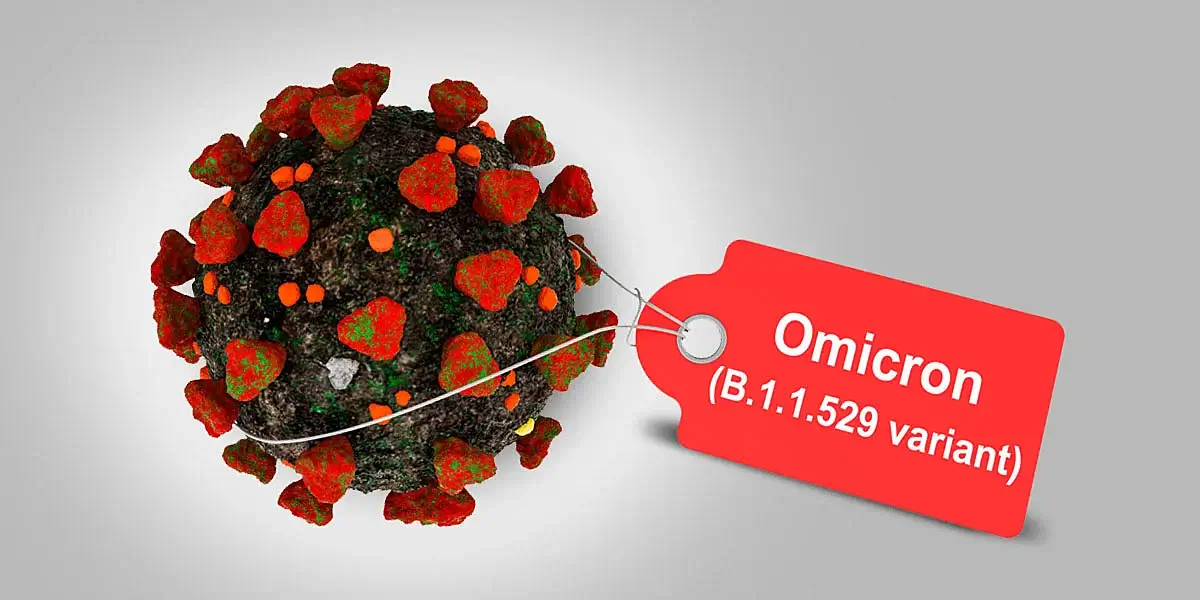In 2019, China's Wuhan reported the first case of SARS-CoV2, causing COVID-19. Over the years, the virus has evolved into increasingly dangerous and transmissible forms. With its ability to attack and damage the respiratory system to take down the healthcare system, the Coronavirus has shown how deadly viruses can be. Eventually, the strain developed a new mutation in 2020, resulting in the most lethal strain to date. Omicron, a new variant of the virus, has spread rapidly all over the world, resulting in the third wave of COVID-19 in India.
The Omicron variant of COVID-19 is causing concern around the world. On the basis of the latest expert knowledge, we answered the 7most frequently asked questions about the Omicron variant.
Question 1 – What is the Omicron variant?
WHO has deemed the Omicron variant of COVID-19 a variant of concern because it contains several mutations that may affect its behavior. Omicron remains uncertain, and much research is underway to determine its severity, transmissibility, and re-infection risk3.
Question 2 – Is the Omicron variant more severe than Delta?
In early findings, Omicron appears to be less severe than the Delta variant, but more research is required, and WHO cautions that it should not be underestimated3.
Remember that all variants of COVID-19, including the Delta variant, can cause severe disease and even death. This is why limiting one's exposure to the virus and preventing its spread is important3.
Question 3 – What is the effectiveness of the existing vaccines against Omicron?
There is no evidence suggesting that the existing vaccines do not work on the Omicron variant of the coronavirus, although some mutations reported on the spike gene do appear to reduce the effectiveness of existing vaccines1. As recommended by WHO, vaccination is also essential to protect against the other widely circulating variants, such as the Delta one. Make sure to get vaccinated. The vaccine requires two doses, so it's important to receive both to have maximum protection2.
Question 4 – Is the Omicron variant detected by current COVID-19 tests?
Yes, COVID-19, including Omicron, can be detected using current PCR and antigen-based rapid diagnostic tests3.
Question 5 – What are the symptoms of Omicron?
The earliest evidence indicates that for most people, at least those who have received a COVID vaccine, omicron appears to cause milder symptoms that are similar to the common cold, another coronavirus3.
There are, however, several common symptoms that include cough, sore throat, runny nose, fatigue, and mild headache4.
Doctors report that loss of taste and smell is not as common as in the previous variants4.
Question 6 – How long does it take to recover from the infection caused by Omicron?
A study of 105 patients, including seven children, at Lok Nayak Hospital, has demonstrated that patients with the Omicron variant in Delhi, which is causing the sudden surge in cases, usually recover within a week5.
According to Dr. Suresh Kumar, medical director at Lok Nayak Hospital says, “This variant spreads fast, but it also gets cleared fast from the body compared with the Delta variant”5.
Question 7 – How to stay protected against the Omicron variant?
Taking precautions to reduce your exposure to the virus is the most important thing you can do. Here are some steps you can take to protect your loved ones:
- Cover your nose and mouth with a mask. Clean your hands before putting on and taking off your mask.
- Stay at least one meter away from others.
- Stay away from poorly ventilated or crowded areas.
- Keep your windows open to improve ventilation.
- Keep washing hands with soap and at times when soap can’t be used, use alcohol-based sanitizers regularly.
- Get double vaccinated.
- Cover the mouth and nose with the elbow or tissues when coughing or sneezing. Do NOT use the hand.
- It is important to regularly clean mobile phones, taps and doorknobs, light switches, and frequently touched items with disinfectants.
- Keep eating and drinking immunity-boosting fruits, vegetables, juices, etc.
--
Conclusion
This virus is wreaking havoc on the entire world. With the deadly virus spreading across the globe, the importance of having a life insurance plan cannot be overstated. In the same way, COVID-19 has different variants, life insurance policies also come in different forms. Life insurance policies like health plans, term plans, ULIPs, money-back policies, endowment policies, etc., help you financially withstand COVID-19 and its variants. It acts as a boon for the loved ones in case of the insured person’s sudden demise. As a result, every individual with financial dependency should obtain a life Insurance policy to cover his/her risk. Connect with a trusted financial advisor today!
Stay Healthy. Stay Safe


Comments